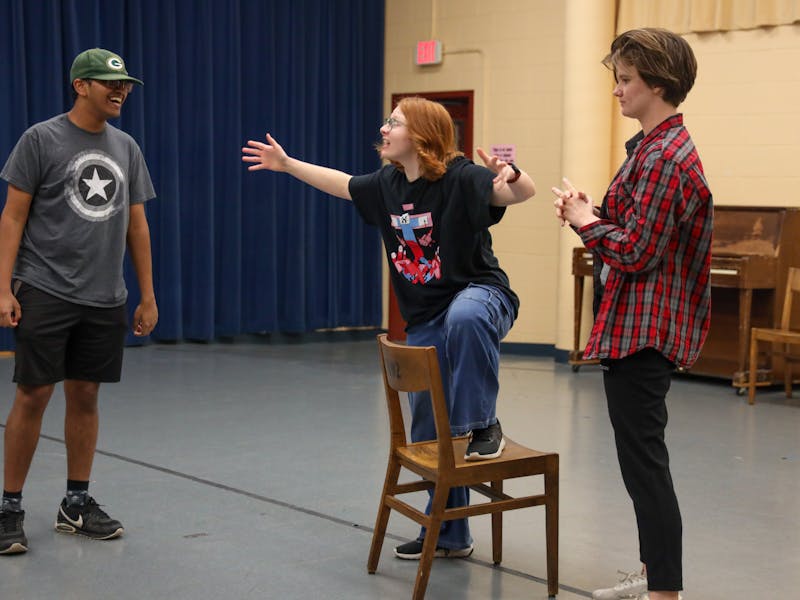With the insanity that 2020 ushered into existence, we have been constantly bombarded by crises of various kinds that demand our immediate attention: public health and safety with the COVID-19 pandemic, police brutality and systemic racial inequality, ecological disasters like the Australian bushfires and forest fires on the West Coast of the United States and a presidential administration that couldn’t be relied upon to speak the truth all demanded our efforts. Within this tumultuous time, notions of sustainability, being green, renewable energy and environmental development took a backseat. But as we slowly pick up the pieces, an examination of sustainability on campus seems apt and a welcome change of pace.
While many might think that we aren’t incredibly eco-conscious, the University of South Carolina’s Columbia campus has the resources to be environmentally efficient today (many of which are already implemented). We have sustainable gardens, industrially biodegradable materials at Russell House (cups, utensils, etc.), and green career opportunities sponsored by the Office of Sustainability. While the administration does have some green procedures in place, it is the students who carry the forefront of the responsibility, seen in the various environmental student organizations offered on campus, including but not limited to the UofSC chapter of the Sierra Club and Sustainable Carolina.
Louis Rubino, a senior Management and Finance major, serves as the president of the university’s Sierra Club chapter, a subgroup of the nationwide organization. The Sierra Club is involved with many projects including starting gardens in partnership with local schools, working on food insecurity in Columbia, holding webinars to share environmental info and pushing the campus administration to utilize renewable energy.
Rubino says that “there’s so many things that the school could do to increase their energy efficiency,” and he is very proud of the student-led movements in place to combat unsustainable practices. “Pastides put in a lot of initiatives to get students, campus and administration to think about sustainability, but we lack in sustainability infrastructure and a plan,” Rubino says. “It’s heavily reliant on students here.”
The city of Columbia is actually remarkably impressive in terms of sustainability. Their current plan, if they go through the outlined initiatives, is wonderful and serves to create a climate-forward city. Mayor Benjamin and the city have made a resolution to get to clean energy by 2036 through the Compass Plan. Rubino encourages students to begin volunteering with them, “having a knowledge about where our school stands with sustainability, just being a part of the conversation.”
Jackson Ringley, a sophomore English and Global Studies double major, works as leadership for Sustainable Carolina’s events and outreach team. Whereas the Sierra Club covers more sprawling issues like renewable energy through petitions and legislative means, Sustainable Carolina has more of a grassroots feel, focusing more on educational opportunities, community gardening, and food insecurity. As a member of the events and outreach team, Ringley’s priorities lie in organizing green career fairs, brainstorming new recruitment events, and assisting with other multimedia content like podcasts.
When asked about his read on campus sustainability, he responded that one can see the club’s influence “everywhere, because there are so many aspects of what it means to be sustainable.” He has a hopeful but realistic take on the campus’s implementation of sustainable practices: “I want to say that they’re doing a good job. There’s room for improvement. With COVID, you can’t use a reusable cup anymore for sanitation. We can’t meet the normal standards due to the current circumstances.”
While the busy life of an organization executive proves exciting for him, Ringley appreciates the peace that working in the garden provides more than anything. “There’s just something about knowing what the purpose of the garden is, a lot of the food is donated to the Gamecock Pantry. To be able to work in the garden and get your hands dirty, it’s so relaxing. It feels good to know that you’re producing something good.”
Sustainability isn’t easy, and it never has been. The practice of sustainable development requires that one be thoughtful about the resources they’re consuming (even indirectly), something that requires constant energy and effort. But, with organizations like the Sierra Club and Sustainable Carolina, you can see the passion that UofSC students have for a sustainable future. Be it through social media outreach, gardening, signing petitions for clean energy, attending green career fairs or an everyday choice like recycling/compost, normal students can help these organization’s causes and sign up for the clubs on Garnet Gate if they feel so inclined.



